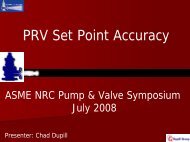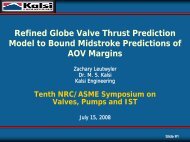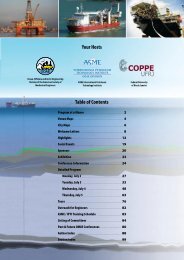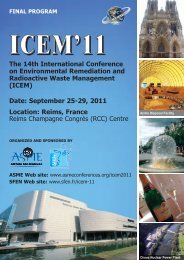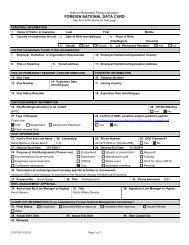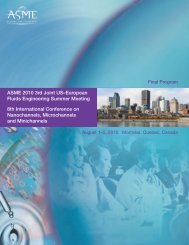2012 John Bischof, PhD - Events
2012 John Bischof, PhD - Events
2012 John Bischof, PhD - Events
You also want an ePaper? Increase the reach of your titles
YUMPU automatically turns print PDFs into web optimized ePapers that Google loves.
PLENARY SESSION, WORKSHOPS, CHALLENGES AND TOUR<br />
Thursday, June 21, <strong>2012</strong> 8:00 AM – 9:00 AM<br />
Plenary Session: GENES INTO GEOMETRY:<br />
GENETICS OF DEVELOPMENT AND DISEASE THROUGH<br />
MOUSE IMAGING<br />
Mark Henkelman, <strong>PhD</strong><br />
Hospital for Sick Children, University of Toronto<br />
- 5 -<br />
ASME <strong>2012</strong> Summer Bioengineering Conference<br />
Grand Atlantic<br />
Salon 1<br />
The completion of the human genome sequence<br />
provides an incredible opportunity to revolutionize<br />
health care. However, our understanding of how genes<br />
give rise to normal development in individuals and also<br />
to many diseases is still very rudimentary. To reap the<br />
benefits of the rich genomic information, it will be<br />
necessary to learn how genes control both normal and<br />
abnormal development.<br />
Fortunately, there is 99% overlap between the genes of<br />
the human and the genes of the mouse. There are<br />
sophisticated methods for manipulating the mouse<br />
genome by knocking out genes, making their<br />
expression conditional or adding new genes. This genetic modification allows for the creation of<br />
models of many of the diseases found in the human population. To investigate mouse models of<br />
human disease, it is necessary to have the same kind of diagnostic tests that we have available<br />
when we look for human diseases. In particular, imaging is an essential way to identify and<br />
characterize human diseases. In fact, it is difficult to imagine modern medicine without medical<br />
imaging.<br />
This plenary talk will illustrate how medical imaging can be adapted to the mouse and how it can<br />
be used to identify the role of different genes in normal development and additionally find mouse<br />
models that correspond to human diseases. This systems biology approach to the genetics of<br />
disease requires knowledge and skills readily available within the biomedical engineering<br />
community, and hence provides exciting new opportunities for research and development related<br />
to biomechanical function in diseases.




